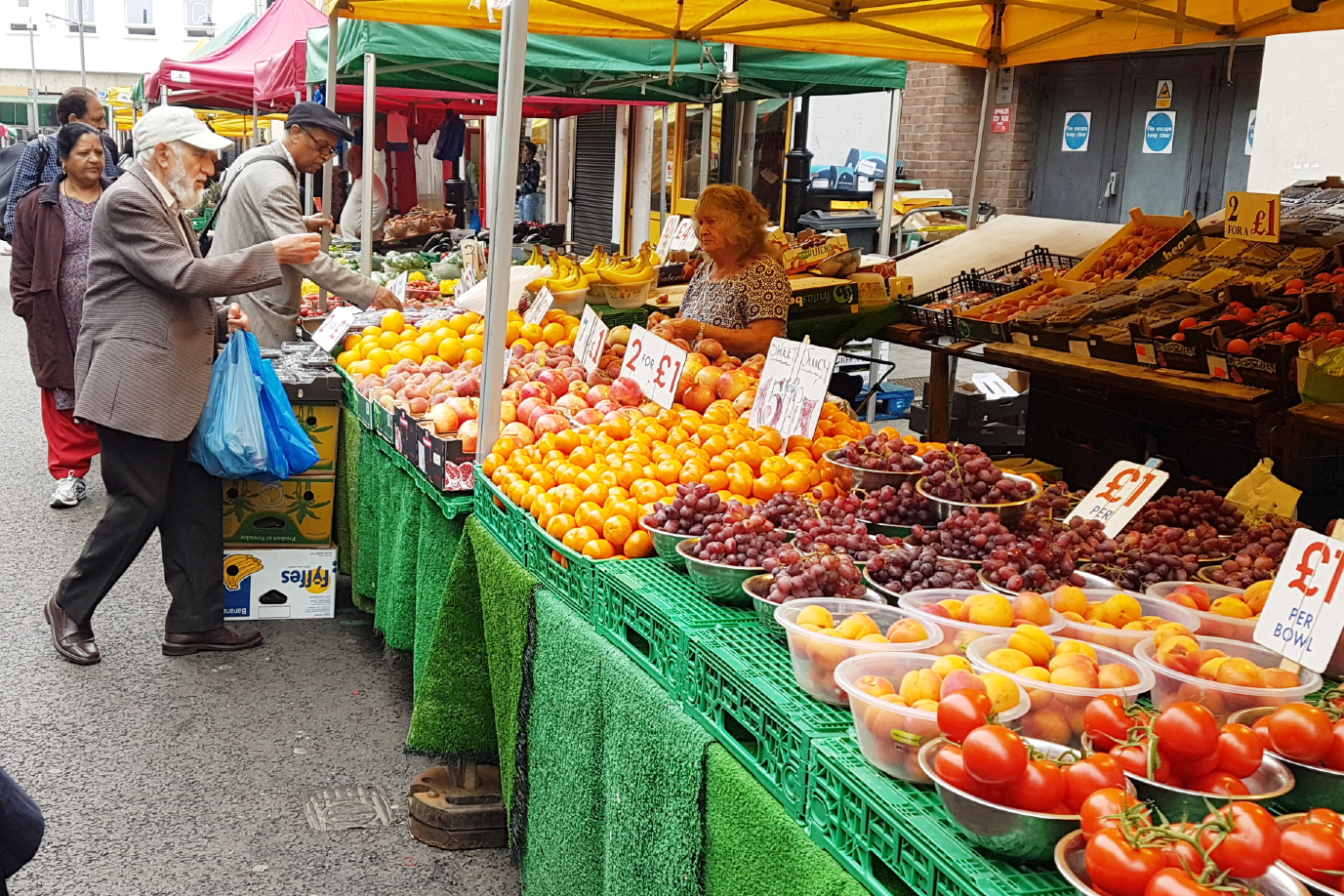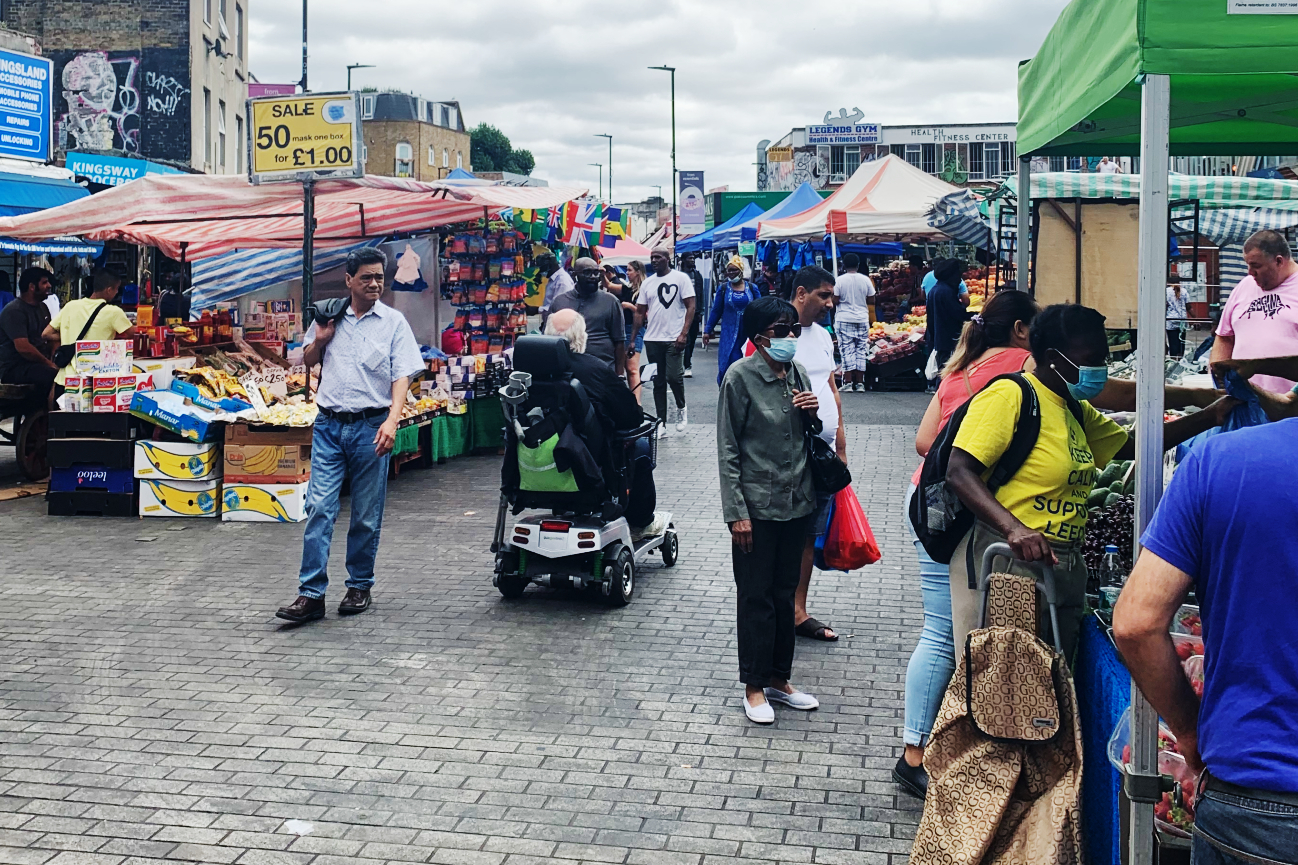Retail markets and the high street: inclusive, sustainable community hubs
Much of the work done at PRD over recent years has been focused on high streets, advising local authorities across London and beyond to adapt and create more successful, sustainable places that work for the communities that use them. Several of these projects considered the role and future of retail markets. In the wake of COVID-19 these complex spaces remain firmly under the microscope, having suffered significantly as a result of the pandemic.
Often home to multi-generational traders, retail markets carry huge significance both in terms of historic and cultural heritage. They are also key drivers of social, economic and environmental sustainability in high streets and town centres. Differentiating from often prohibitively expensive specialist markets, it is essential to recognise the foundational roles that these spaces can and must play.
Retail markets as inclusive social infrastructure
Across the UK, particularly for low-income communities, retail markets function as vital social infrastructure, providing places to meet, enhancing local resilience, and generating much needed vibrancy for local economies. These spaces represent so much more than places to buy and sell.
Our recent work at Queen’s Market in Newham illustrates just that. With a loyal and long-standing customer base, it attracts a diverse range of users, and carries particular importance as both a social space and as an enabler for marginalised and vulnerable groups to access support and care. Like many other retail markets threatened by rising costs, the prospect of redevelopment and gentrification, Newham Council have recognised the importance of Queen’s Market to the community, ensuring this is preserved during regeneration.

Retail markets providing access to affordable and healthy food
In the midst of a cost of living crisis, retail markets also play an important role in addressing critical social challenges such as food security and access to affordable healthy food. The Food Foundation highlights in its #BrokenPlate2022 report that healthy food is around three times as expensive per calorie than less healthy options: retail markets often provide a route to affordable fresh and healthy produce at lower prices than in stores.
This is evident at another site of ongoing work at North End Road Market in Hammersmith & Fulham. An area of considerable socio-economic polarisation, the Council has helped to fund The Rose Voucher Project providing families on low incomes with vouchers to access fresh fruit and vegetables on the market.

Retail markets as platforms for enterprise, employment and skills
Markets also create opportunities for start-ups and enterprise to trade and test ideas. Benefitting from relatively low barriers to entry, they provide an affordable and flexible alternative to brick-and-mortar retail, providing more jobs for Londoners on a square foot basis than supermarkets.
Hackney Council’s ‘Trading Places’ programme provides local jobseekers with discounted pitches at street markets alongside access to skills and training courses, improving pathways to employment and facilitating economic inclusion.
Retail markets as vehicles for environmental sustainability
Given the urgency of the climate crisis, economic development at all scales can no longer afford to downplay its role in reducing carbon emissions. Town centres will need to be redesigned for sustainability and retail markets are a great way to support this through selling locally grown produce, testing new approaches to last mile logistics and facilitating more pedestrian friendly high streets. Particularly in urban areas, this can collectively make a major contribution to greening our town centres, reducing food miles, tackling excessive food waste and restoring air quality.
OZCF Market in Cape Town is linked to OZCF City Farm, an educational non-profit project celebrating local food, culture and community through urban agriculture. Whilst the Market is now privately owned, working in partnership with the Farm it has successfully demonstrated how such spaces can connect residents to local producers, regaining control over food consumption and enabling a better local food system.

Retail markets are central to resilient and successful high streets
Of course, this only scratches the surface in terms of the importance and potential of retail markets. More broadly, debates surrounding the destiny of London’s high streets continue, notably with the recent launch of the GLA’s Property X-Change network.
We face fundamental challenges in how we can meet the foundational needs of communities, delivering on 15-minute neighbourhood principles and revitalising our high streets. Placing retail markets at the heart of these discussions is an essential consideration in planning successful places.
At PRD we continue to work on a wide range of projects considering the influence and importance of retail markets on social and economic prosperity. If you’d like to keep the conversation going and hear more about our approach to delivering genuine public value for communities, do get in touch.
By Sam Franks